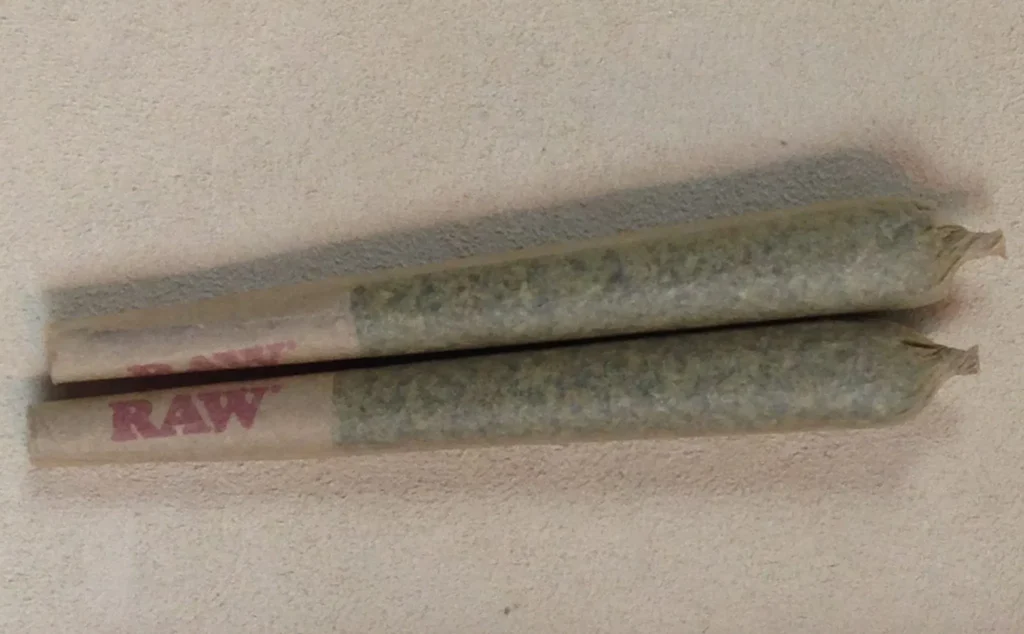(North Dakota Monitor) – North Dakota medical marijuana businesses are high on the list of donors backing the state’s legalized pot ballot measure, according to campaign finance reports.
More than $287,000 has been donated to the ballot initiative’s sponsoring committee by two organizations associated with North Dakota medical marijuana dispensaries, with only $130 in small-dollar donations collected outside of that total.
Pure Dakota Health, a chain of three medical marijuana dispensaries operating in the state, has contributed about $247,000 in regular and in-kind donations to New Economic Frontier, the group promoting the ballot initiative.
In July, GR Holding OH-ND LLC, a company associated with Curaleaf, donated $40,000 to the effort. Curaleaf operates four medical marijuana dispensaries in North Dakota, as well as more than 140 cannabis dispensaries nationwide. GR Holding also donated to North Dakota’s recreational marijuana initiative in 2022, according to campaign committee filings.
The Secretary of State’s Office announced Monday it has approved the recreational marijuana measure for the November ballot after verifying nearly 19,000 signatures of people who signed onto the petition, more than the 15,582 required by law.
Casey Neumann, chief operating officer for Pure Dakota Health, said the company donated to the initiative because officials see the potential for recreational marijuana in North Dakota as a net-positive for the state’s medical marijuana industry.
Paul Chialdikas, senior vice president and central region lead for Curaleaf, said in a statement the company has helped other states transition from medical to adult-use markets in the past and has “the infrastructure and expertise to provide a diverse assortment of safe, tested products to adult-use consumers and medical patients alike if the initiative passes.”
Pat Finken, chair of the Brighter Future Alliance, a group opposing the measure, said the medical marijuana providers and others see dollar signs in getting the measure passed.
“This is not about helping the judicial system or law enforcement, this is about greed and it’s that simple,” Finken said. “You look at the money being spent on recreational marijuana, it’s a very profitable business and that’s what’s driving this.”
Steven Bakken, chair of recreational marijuana initiative’s sponsoring committee, said any business, including North Dakota’s medical marijuana providers, would have a chance to apply through the state for recreational permits, if the measure should pass this fall.
The ballot measure was drafted in a way that allows the state government to have full control to make the determination on who will receive permits and who will not, Bakken said.
He also said the donations to the ballot initiative’s sponsoring committee from medical dispensary groups, while hopeful for their own interests, may be funding opportunities for competitors to challenge their position in the marketplace.
“It’s an interesting dichotomy,” he said.
Medical marijuana sales in North Dakota have increased from about $6.4 million in 2020 to $21.6 million in 2023, according to a 2023 Department of Health and Human Services annual report. Those sales have resulted in more than $2.1 million in medical marijuana fees being collected by the state during the 2021-23 biennium. More than 9,500 North Dakota patients were enrolled as of June 30, 2023.
Neumann added, if the measure passes, the only thing that would change for Pure Dakota Health would be an increase in the number of plants the company could cultivate at its processing facility.
Neumann is also one of 27 co-sponsors for the recreational marijuana measure and collected signatures for the initiative.
The ballot measure would limit North Dakota to seven cannabis manufacturing facilities and 18 recreational cannabis dispensaries across the state with applicants limited to controlling no more than four dispensaries and one processor each.
Neumann said since Pure Dakota Health already has three permitted dispensaries under the state’s medical cannabis program, under state law the company would only be able to apply for one additional dispensary should the recreational marijuana measure pass.
“Those laws won’t change,” he said. “We’re not looking at that and that surprises a lot of people.”
Neumann said he hopes the state’s medical marijuana program would continue to operate with a lower tax rate on sales than recreational cannabis, which would provide a value for those still participating in the medical program.
In North Dakota, a 5% sales tax is added to every medical marijuana sale and additional taxes can be collected by local subdivisions. Montana has a medical cannabis tax rate of 4%, which increases to 20% for recreational sales.
November will be the third opportunity since 2018 that North Dakota voters will cast ballots on the fate of recreational cannabis in the state.
If approved by voters, North Dakotans 21 and older would be allowed to possess up to 1 ounce of cannabis flower, up to 4 grams of THC concentrate, up to 1,500 milligrams of various cannabis products and up to 300 milligrams of THC edible products.
Adults also would be able to grow up to three cannabis plants in a private residence, or on private property, generally not accessible to the public, with the blessing of the property owner.
Law enforcement associations have opposed previous recreational cannabis measures in North Dakota, but have not taken an official position on the new cannabis measure that will be put before voters this fall.
On July 8, New Economic Frontier reported more than $68,000 in cash on hand after spending nearly $147,000 during the circulation period, campaign finance reports showed.
H/T: knoxradio.com



